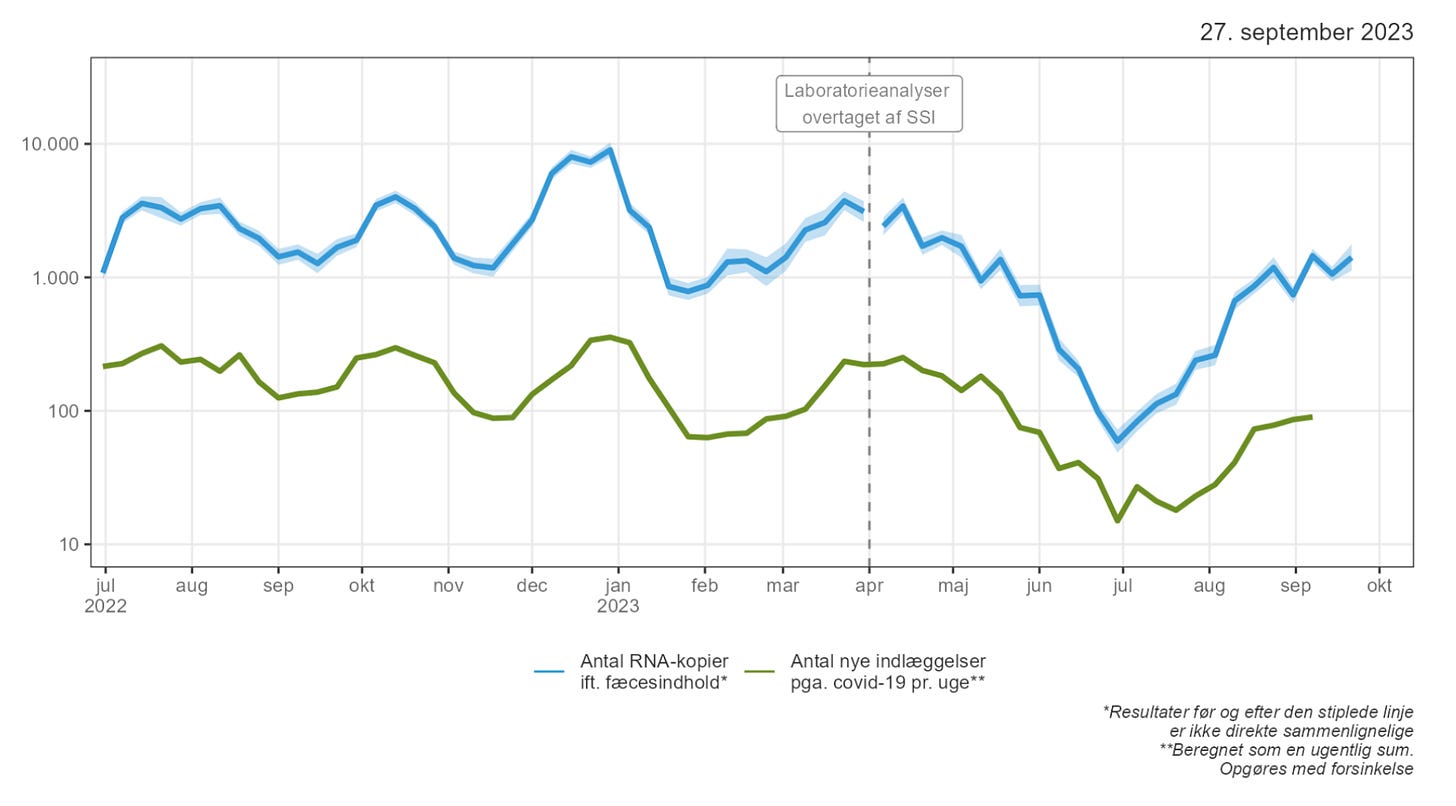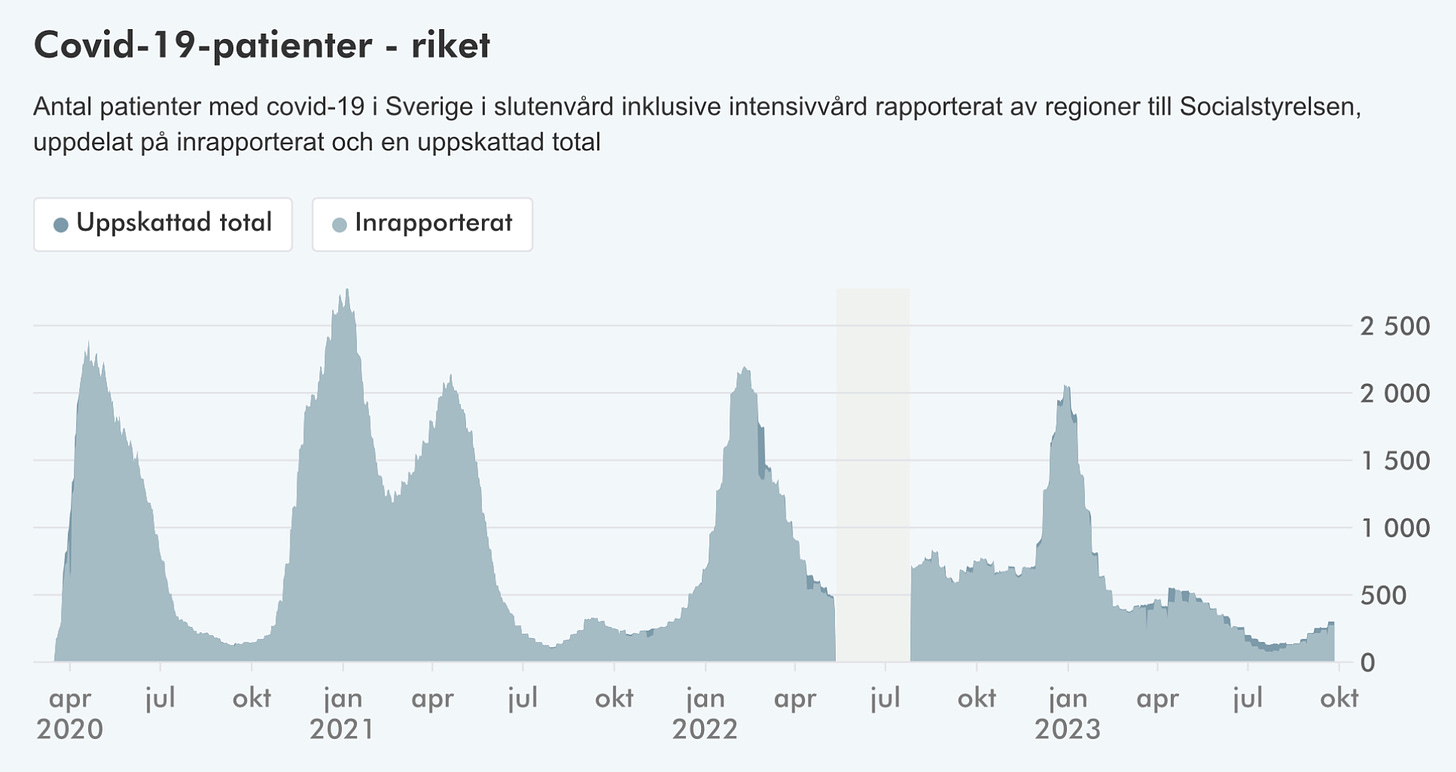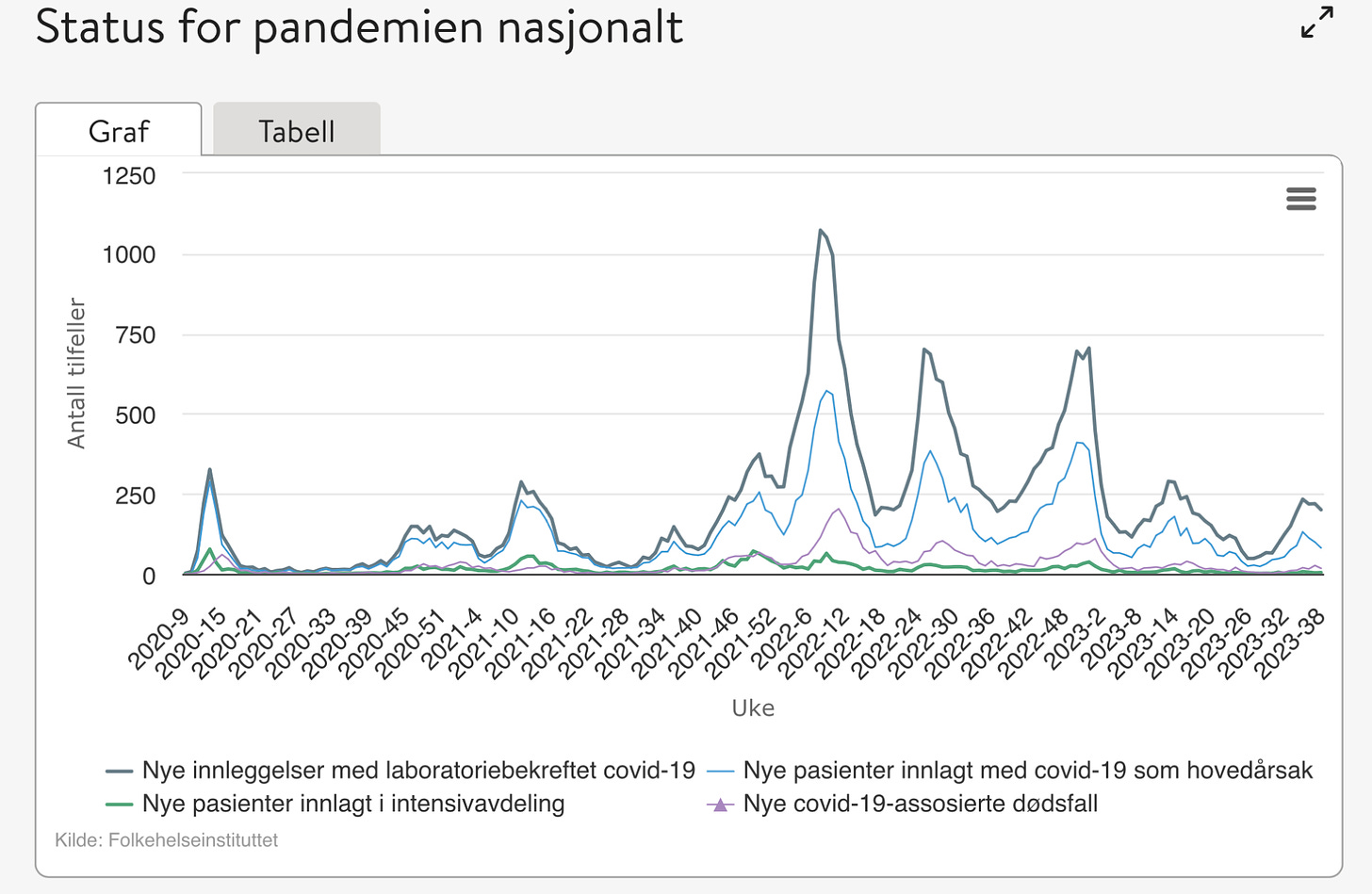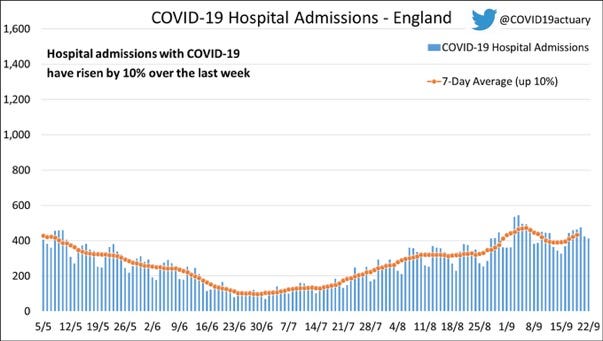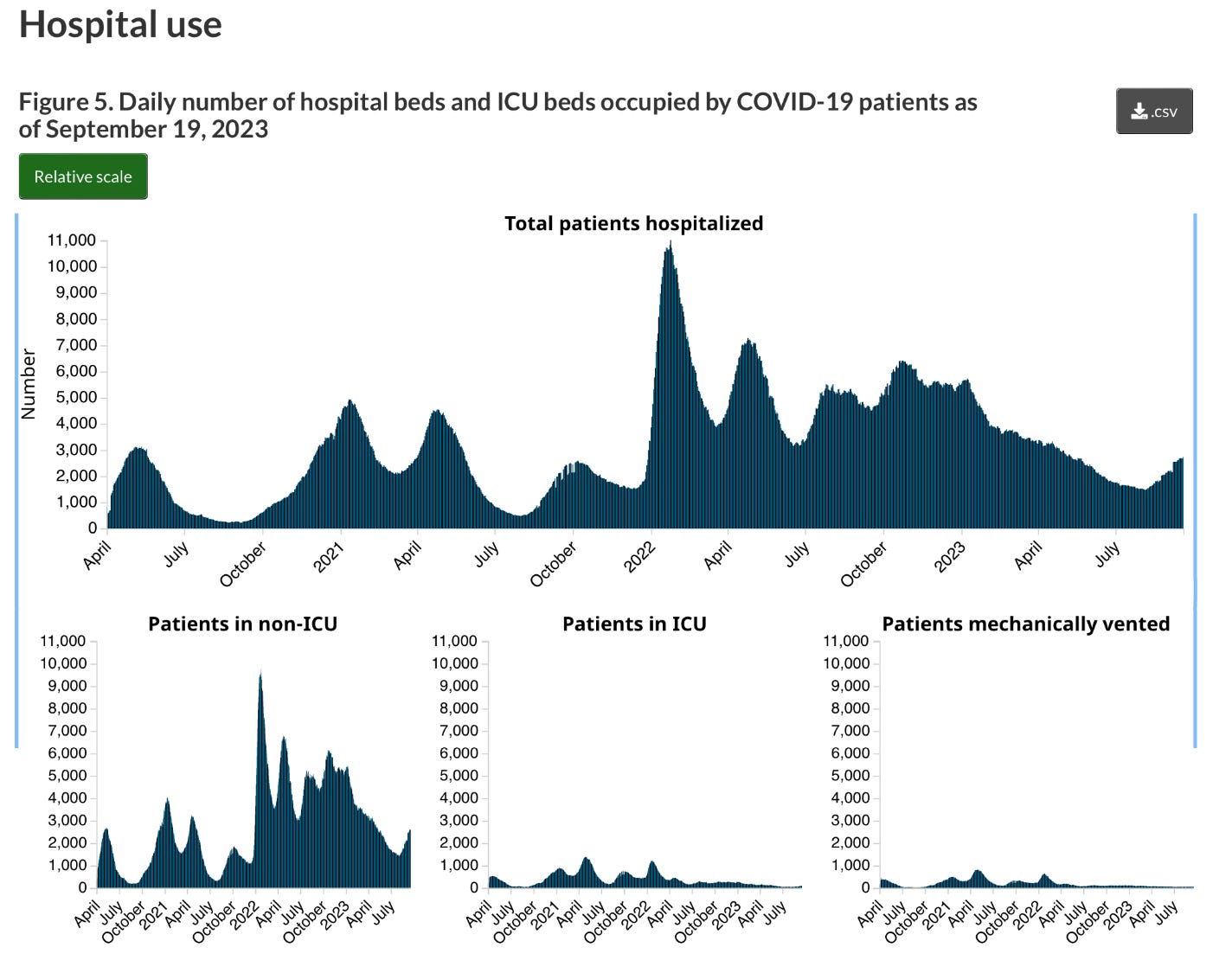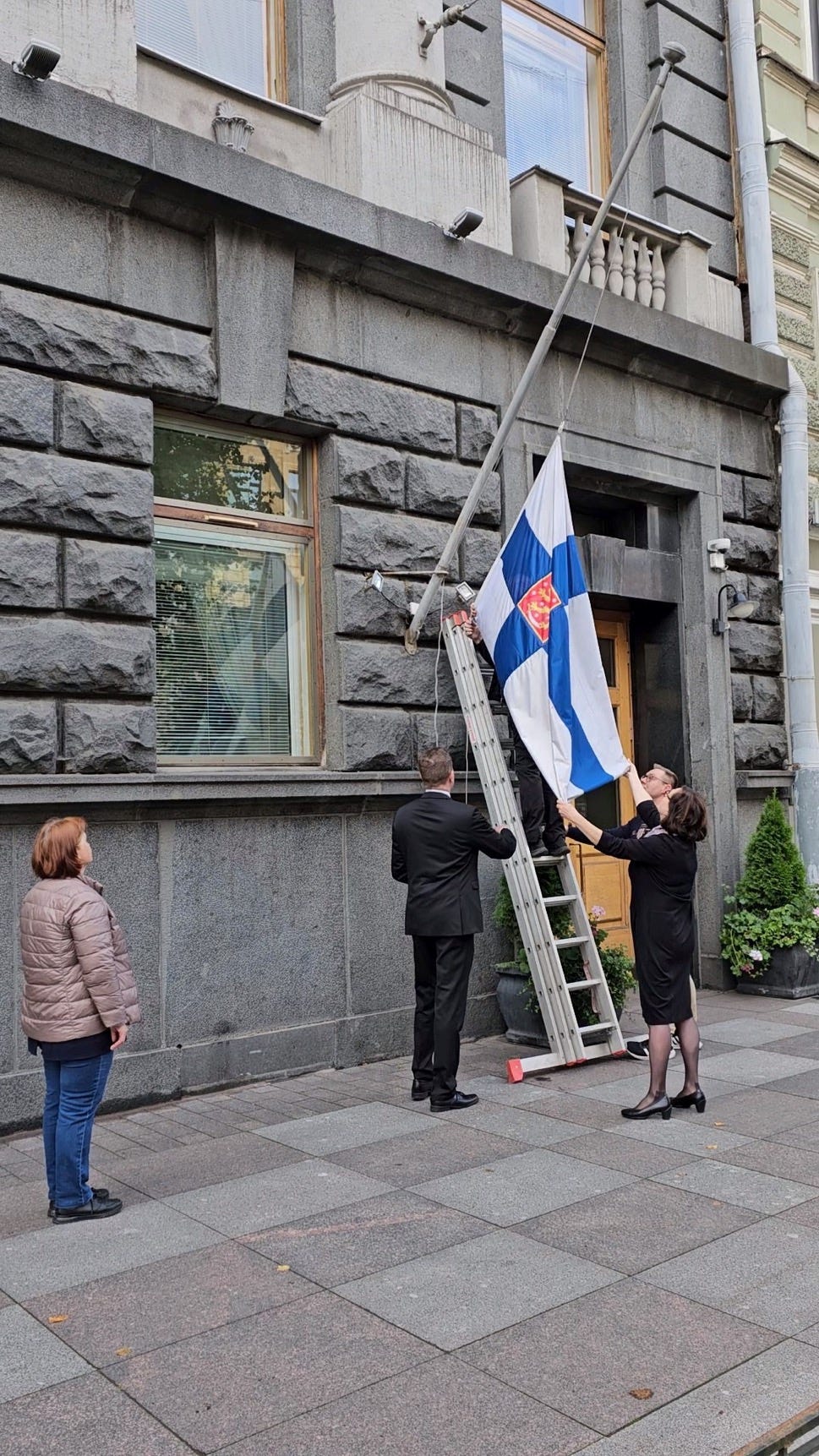🍃Environment & Energy⚡️
🇩🇰
The cost of travel by train, light rail, metro, and bus will go up across Denmark next year. On average ticket prices will increase by 10% to ride on DSB, Arriva, and DOT regional transit routes. But price hikes will vary from area to area. DSB blames the increase on inflation with costs going up to cover the expense of running the national rail network. But the rail operator says that it will sell an extra one million of its budget Orange tickets beginning in 2024.
Reaction to the news is mixed as some experts wonder if, during a climate crisis, the increased cost of public transit will just drive people to take their car and potentially add to greenhouse gas emissions. Others note that Denmark already has a registration tax, green ownership tax, blending requirements for fuel, as well as fuel taxes. Beginning in 2027 the European Union will also place strict environmental requirements on car manufacturers.
The news is not being welcomed by Danish politicians as parties across parliament are now demanding that Denmark’s Transportation Minister Thomas Danielsen step in a put a stop to the planned price hikes.
Socialistisk Folkeparti Transport Spokesperson Sofie Lippert spoke to DR:
“I believe that the government must do something about these ticket prices. We will have to do that if we want to continue to have public transport that people actually use. More people will choose public transport instead of the car, and this is bad for both the climate, the environment and the congestion on the roads.”
How much will the increase cost you? A train trip between Aarhus and Copenhagen will increase by 40 kroner to 469 dkk, for example.
Using a rejsekort (Transit Card):
Travel across the Storebæltsbroen (Big Belt Bridge) by train will cost about 8-10% more.
Prices increase by 11% for travel west of the Storebæltsbroen.
Prices will rise by almost 13% for travel east of the bridge.
Using a Pendlerkort (Commuter Card) or an Ungdomskort (Youth card):
Over the Storebæltsbroen: +6%
West of the bridge: +5%
East of the bridge: +11%
Purchase of a single DSB ticket:
Across the Storebæltsbroen: +9.5%
West of the bridge: +7.7%
East of the bridge - prices will actually decrease by 0.9%
For retirees (pensioners) DOT travel card costs will rise by 10% while DSB rejsekort prices will rise by 30%.
Transportation Minister Thomas Danielsen appeared on P1 Morgen to answer questions about the transit price hikes. Danielsen referenced the government setting aside 100 million kroner for public transit initiatives in its budget,
“We are going to take a large number of measures on public transport. The ambition is for as many people as possible to take public transport. And that is why we have launched a large number of initiatives. I have set up an expert group to look at tariffs and tariff structures and public transport in general, because it is not a new situation that we are in with price increases, and we have to look at this area as a whole, so I can promise something will happen.”
The transit expert group will submit its findings at the end of next year.
-
If you live in Denmark and were up early Thursday morning enjoying a particularly colourful sunrise you can thank wildfire smoke from Canada. The Danish Meteorological Institute says smoke particles from the wildfires in Canada have arrived and were a big factor in the dazzling red and orange shades of the sunrise. The weather agency says a haze of wildfire particulate matter from Canada, which had drifted over the UK, arrived in Denmark on Thursday and might stick around the a day or two.
-
Temperature records were broken on Wednesday night across several areas of Denmark. For example, the overnight temperature on the island of Samsø never went lower than 16.1 degrees making it the warmest fall night on record. The island began keeping weather and temperature records in 1872. In Southern Jutland, the coolest it got overnight was 17.3 degrees matching a record set in 2018.
With a few days left in the month, Denmark is on track to have the warmest September ever recorded. Currently, the average temperature this month is 16.4 degrees. The record for warmest September is 16.2 degrees, which was set in 1999 and then matched again in 2006 and 2016.
-
As the cold winter months approach and the energy crisis simmers under the surface the Danish Energy Agency is reminding people to be power smart.
Deputy Director Martin Hansen:
“The energy crisis is not a thing of the past. The fluctuating energy prices and the easily influenced market are a good example of this.”
People in Denmark have been doing a good job of reducing their power consumption through last winter and over this past summer according to the agency. Although it adds there was one brief hiccup in the summer where the average power use approached levels seen in previous years.
The energy agency is reminding people to conserve energy.
“Especially for gas, there are a number of unknowns such as China's increasing LNG consumption, a stop to the import of Russian gas and the possibility of cold winter weather.”
🇩🇪
Germany is pressing pause on introducing new stricter climate protection mandates for insulation in new buildings. Federal Economics Minister Robert Habeck announced this week that there are plenty of other measures in Germany and at the EU level that ensure strong environmental standards.
Habeck spoke to Reuters:
“The introduction of the Building Energy Act ensures that new buildings will have climate-friendly heating from 2024. That’s why I no longer think it’s necessary to quickly introduce the new EH 40 standard. That can wait, it doesn’t make much sense given the EU Buildings Directive. Therefore, I no longer see this new standard in this legislative period.”
Germany’s construction industry has been fiercely opposed to the insulation mandate.
🇫🇷
The French government has tabled an ambitious new climate plan that it says will result in the country ending its use of coal power plants by 2027 and ending the use of all fossil fuels by 2030. President Emmanuel Macron presented the plan this week. It says that France has to reduce its greenhouse gas emissions by 55% in order to reach its final goal. It also mandates that CO2-emitting industries reduce their emissions by 45% by 2030. The plan comes with a 10 billion euro price tag.
To reach its climate goals France will invest heavily in offshore wind farms, bring more electric battery factories online, and do a wholesale investigation of every green energy possibility across the country.
🇸🇪
Some good news on the wildlife front. A record number of migrating cranes have stopped at Sweden’s Lake Hornborga this week. An estimated 24,000 of the birds were reported to have landed at the lake on Monday, smashing the previous record high. The lake is famous among Swedish birdwatchers. Every year thousands of the cranes make a stop at the lake before continuing south in the fall or returning north in the spring.
🇺🇸
The U.S. Department of Justice is taking the fight against climate change to court as it sues auction and trading giant eBay for breaking environmental laws. The online auction site is accused of allowing the illegal sales of over 300,000 products that allow cars to bypass environmental standards used to limit harmful greenhouse gas emissions. eBay is also accused of allowing the sale of restricted pesticides that pose a risk to the environment.
🇬🇧
There is a risk of energy shortages and possible blackouts in the United Kingdom in January, albeit the risk is much lower than it was last year. The country’s electricity supply operator is warning that the usual peak electricity demand in January could collide with maintenance at some of the country’s nuclear power plants resulting in energy shortages.
However, with the UK shoring up on LNG to replace Russian gas, an increase in offshore wind capacity, and nuclear facilities across the channel in France working at full capacity the hope is that January won’t turn into a full-blown energy crisis.
In a statement, National Gas Transmission’s Systems Operations Director Ian Radley said there are two wild cards. One is the weather, the colder it is the higher the demand for heat. The other is if there were a major interruption in gas supply.
🦠COVID🦠
🇩🇰
COVID activity in Denmark seems to be fluctuating up and down over the last few weeks according to wastewater surveillance results (blue line). The Statens Serum Institute categorizes coronavirus activity as being at a “stable level” as of last week.
Infection-related hospitalizations (green line) also seem to be hitting a bit of a plateau.
Looking at wastewater testing numbers regionally infection activity is up sharply in both Region Nordjylland and in Region Syddanmark.
-
The Statens Serum Institute says the number of confirmed BA.2.86 infections has now risen to 31 across Denmark. It says the new variant has increased its share of infection activity from 9.5% three weeks ago to 10% of all sequenced positive tests as of last week. Testing in Denmark is a pale shadow of what it once was so these numbers are only hints at whatever the real situation is.
-
Having a COVID infection doesn’t make people more susceptible to severe infections from other viruses, at least as long as you are vaccinated. That is the conclusion of a new study from Denmark’s Statens Serum Institute. The SSI tracked 2.4 million people in Denmark over the age of 50 from January 2021 until December 2022. Of those just under half had a coronavirus infection over the two years. After recovering from infection 78,000 of those people ended up in the hospital due to another infection, usually for things like influenza, pneumonia, or blood poisoning.
Researchers compared hospitalization numbers among the pool of people who had COVID and those who did not.
Department Head, and study lead author, Professor Anders Hviid:
“We found no cause for concern. There were no more hospitalizations with other infectious diseases after infection with COVID than expected. On the contrary, it seemed that overall there were slightly fewer.”
Some studies have suggested that having a coronavirus infection can impact the body’s immune system making it more vulnerable to other diseases. The Danish study seems to disprove this.
The study’s findings did have one caveat. It found among those who were unvaccinated there was an increase in hospitalizations due to other infectious diseases after a COVID infection. There was no increased risk among the vaccinated, especially those who were up to date on their booster doses.
“We see once again that although we cannot prevent infection completely with the vaccines, the so-called breakthrough infections are milder. Our results suggest that this does not only apply to acute coronavirus infections but also to the possible post-acute adverse effects that have to do with the immune system.”
The study in full can be found HERE.
-
A whooping cough epidemic continues to intensify across Denmark. The Statens Serum Institute says infection numbers have seen a significant increase over the summer. The institute says in week 37 it recorded ten times the number of whooping cough infections than is normal for this time of year. Usually, about 20 whooping cough infections are seen on average in any given September week but in week 37 there were 200 confirmed cases.
Department of Infection Epidemiology Senior Researcher Tine Dalby:
“We have seen both a rapid and strong increase in whooping cough over the past months, and since whooping cough is highly contagious, it is important to pay attention to minimizing further infection.”
The SSI has reactivated whooping cough (pertussis) vaccinations and is urging people to get inoculated especially pregnant women.
“It is important that pregnant women get vaccinated against whooping cough to protect their child, especially now that we have an ongoing epidemic. In most other countries in Europe as well as in The USA, Canada, and Australia have also introduced vaccination for pregnant women, and there are good track records both in terms of safety and effectiveness.”
🇸🇪
In Sweden, COVID hospitalizations (276) have more or less remained static week to week (+1) while intensive care numbers (8) have crept upward (+2).
🇳🇴
All is quiet on the COVID front in Norway, at least at the moment. The Norwegian Institute of Public Health says the epidemic remains in a “stable low phase” but adds this can change. It says coronavirus indicators are either plateauing or are in decline. The drop in infection activity also includes influenza and the RS virus.
The NIPH is advising the regions and hospitals around the country to remain vigilant and be prepared for any surge in infection activity. It is a,so advising people to stay home if they are sick and do everything they can to limit infection spread.
🇪🇺🦠🛩️
Ryanair has lost its court case against Scandinavian airliner SAS. The England-based budget airline has argued that funding handed to some of Europe’s biggest national airlines during the pandemic was illegal and in violation of European law. The European Court of Justice has ruled against Ryanair saying the pandemic support monies were in line with EU law.
🇬🇧
COVID hospitalizations in England remain in an up-and-down pattern with numbers rising again this week. According to the COVID Actuaries Response Group infection-related admissions rose by 10% week to week. Admission rates were flat or down in three regions but rose in all the rest, led by a 33% increase in the northwest.
Intensive care occupancy crept upward rising by 1%.
The reinfection rate rose to 1.04. Anything over one indicates degrees of a spreading epidemic.
🇦🇺
COVID was the the third leading cause of death last year in Australia according to the Australian Bureau of Statistics. It accounted for one out of every 20 deaths in the country in 2022.
Head of Mortality Statistics Lauren Moran:
“This marks the first time an infectious disease has appeared in the top five leading causes since 1970, when influenza and pneumonia were ranked fifth. Broken down by sex, we saw that COVID was the third-ranked cause of death for males (5,484) and the fourth-ranked cause of death for females (4,375). Those who died from COVID had a high median age at death of 85.8 years.”
🇨🇦
The Public Health Agency of Canada says infection indicators are rising almost across the board. It warns that seniors 80 years old and older make up most of the confirmed infections, hospitalizations, and those needing intensive care. The agency adds that infection-related deaths are beginning to increase again with 87 more lives lost to the virus in the last week. Total to date COVID deaths are getting close to exceeding 55,000 in Canada.
COVID hospitalizations continue to head upward across Canada. In the week ending September 19, the total number of hospital beds occupied by a coronavirus patient rose to 2,742, that is 127 more than the week before. The increases were entirely in general admissions with intensive care (91) and ventilator numbers (57) staying put from one week to the next.
The weekly positivity percentage also continues to climb and now sits at 16.6%.
-
Hospitals in B.C. are joining those in several other cities and provinces in Canada in reinstating the use of masks as infection numbers shoot upward again.
🇺🇦/ 🇷🇺 War
NATO 🇺🇦
NATO member countries are spending big bucks to get more ammunition churned out as quickly as possible as the war in Ukraine eats up available supply. The 24 countries that make up NATO’s Land Battle Decisive Munitions framework have issued orders and framework contracts for hundreds of thousands of rounds of some of the most in-demand ammunition. The contracts are estimated to be worth about €2.4 billion. They will deliver a massive supply of 155mm artillery shells, anti-tank guided missiles, and tank ammunition. According to NATO, these orders are being expedited with the first shipments scheduled to arrive before the end of the year.
Secretary General Jens Stoltenberg:
“NATO has tried and tested structures for joint procurement and they are delivering. I welcome Allies’ commitment to making major new investments in ammunition. Russia’s brutal war against Ukraine has reminded us that a war of attrition becomes a battle of logistics. Robust munitions supplies are essential to ensuring we can keep supporting Ukraine while protecting every inch of NATO territory. This also provides a strong demand signal to industry across the Alliance to ramp up production.”
The 24 NATO member nations that are participating in the program are Belgium, Croatia, Czech Republic, Denmark, Estonia, Finland, France, Germany, Italy, Latvia, Lithuania, Montenegro, Netherlands, North Macedonia, Norway, Poland, Portugal, Romania, Slovakia, Slovenia, Spain, United Kingdom, Austria, and Sweden.
🇫🇮/ 🇷🇺
Finland’s Foreign Affairs Ministry took to its social media channels on Wednesday to publish a picture of the flag being taken down at Finland’s consulate in St. Petersburg. Russia has ordered the consulate closed by October 1 as diplomatic relations between the two countries sit in a deep freeze.
The Finnish Foreign Affairs Ministry said in its post that the war of aggression launched by Russia in Ukraine “broke the foundation of our relations.”
The Finnish government has already ordered the Russian consulate in Turku to be closed in a tit-for-tat retaliation.
-
In Finland, a petition initiative to also close Russia’s consulate in the Åland Islands has reached over 50,000 signatures meeting the threshold requiring a response from the Finnish Parliament. The petition says that the consulate poses a threat to Finnish national security now that Finland has joined NATO and calls for the consulate to be closed.
-
Beware Russia now and in the future. That was the message from Finland’s Foreign Affairs Minister Elina Valtonen in an interview with the Washington Post. Valtonen says that is important that the blame for the war in Ukraine not be Russian President Vladimir Putin’s alone.
"And I think what many haven’t perhaps realized is that this is not just Putin’s war. It seems that the Russian machinery, so to speak, has been preparing for this for a very long time. They have been actively waging war since [the 2008 invasion of] Georgia and in 2014 against Ukraine, with the illegal annexation of Crimea. So if Putin goes, it’s very unlikely that somehow Russia will become a peaceful normal democracy. But while hoping for that, we have to prepare for the worst and the worst is that Russia remains like it is and perhaps even worse in the future."
🇺🇸 🇫🇮
Three Finnish companies have been black-listed by the U.S. Department of Commerce over allegations of supplying valuable components to a Russian company that manufactures drones for Russian military intelligence. The firms are Luminor, Siberica, and Evolog. Two of the companies, Luminor and Siberica, operate out of the same address and have the same CEO. He is Gabriel Temin, a French citizen. He was arrested last week on suspicions of committing an aggravated economic regulation offense and for the export of military equipment.
🇱🇹/ 🇷🇺
NATO has dispatched state-of-the-art surveillance aircraft to Lithuania to keep a close eye on Russian military activity. The Airborne Warning and Control System (AWACS) aircraft arrived today and will soon begin flying missions along NATO borders in the skies above the Baltic states.
Acting NATO Spokesperson Dylan White
“Russia’s war of aggression against Ukraine has increased our focus on the security environment in the Baltic Sea region. Our AWACS can detect aircraft and missiles hundreds of kilometers away, making them a key early warning capability for NATO. This is an important contribution to our shared security.”
🇸🇪 🇩🇰 🇩🇪/ 🇷🇺
It has been one year since saboteurs blew up the Nord Stream oil pipelines running from Russia into Europe. The pipeline was damaged deep underwater in the Baltic Sea just outside of Swedish and Danish territorial waters. Despite multiple investigations a year later, we have more theories than facts.
On the anniversary of the sabotage, a collaborative investigation from a number of European media outlets has published some new information about one of the theories. A yacht suspected of being involved made stops in Danish ports at least three times before the pipeline attack. Two of the ports of stay were on Bornholm, the closest ports of call to the sabotage site. German investigators revealed months ago that a yacht named Andromeda was one vessel suspected of being involved. Previous media reports have found that the rented yacht may have had a Ukrainian crew onboard and that traces of explosives were found onboard. Among other clues, payments, phone numbers, and passport photos all led to Ukraine. But other investigations citing sources in Germany also cast doubt on the yacht and its crew being the main culprit but instead could have been one of two or more vessels involved or was simply a decoy away from the real perpetrators.
From the story published by Süddeutsche Zeitung:
“Until now, nothing has been published about Bornholm or stop number two on Christiansø. It is unclear what has happened in the individual ports - whether an unplanned stop was necessary due to bad weather, or whether personnel or equipment have come on board.”
The other theory that was fleshed out a little in a joint investigation by the four Nordic national broadcasters earlier this year called ‘The Shadow War’ revealed Russia had ships posing as fishing vessels but outfitted to gather intelligence. Those vessels were tracked around the Baltic and as far as the Faroe Islands. The investigation also revealed that Russian naval ships with the equipment and capacity to carry out sophisticated underwater operations had suspicious sailing patterns over the site of the explosions prior to the blasts.
The other more local concern is while investigators in Germany have revealed some details of their findings in the past year, in Denmark it is radio silence. The national police force won’t comment on its investigation and neither will Justice Minister Peter Himmelgaard who spoke to DR.
“I still can't say that after all this while, I don't know what the investigation will point to. Matters that concern the security of the nation and generally concern our intelligence services, there is always to some extent information that cannot be shared for reasons of national security.”
Besides Germany and Denmark, another investigation is being conducted by Swedish authorities. They recently revealed that their examination of the sabotaged pipelines won’t finish until year's end.
🇸🇪 🇺🇸/ 🇹🇷
Turkey’s parliament will return for its fall sitting next month after pausing over the summer. In the Vilnius agreement reached in the summer, Turkish President Recep Tayyip Erdogan had promised to ratify Sweden’s NATO application when parliamentarians returned to work in October. But since then the mercurial leader has taken several different tangents in trying to use the ratification vote as more leverage on a number of issues. His latest tactic is to tie the delivery of American F-16s to Turkey’s support for Sweden. The U.S. Government had been applying a lot of pressure behind the scenes and F-16s were one of the carrots used to get Turkey onboard in supporting Sweden’s NATO ascension.
But the Biden administration still needs the support of Congress to get move F-16s to Turkey and that support is not a given. Although one major roadblock may have just been removed. Democratic Senator Robert Menendez is chair of the powerful foreign affairs committee and he has been blocking the sale of the fighter jets to Turkey since 2020. But Menendez is now in a lot of hot water as he and his wife have been indicted on bribery charges after federal agents found hundreds of thousands of dollars. Gold bars, and a luxury car that were alleged bribes. He has since stepped down as chair of the foreign affairs committee.
Seeing an opening Erdogan is sending his Foreign Affairs Minister to the United States to try and speed up the process of getting F-16s to Turkey.
As for ratifying Sweden’s NATO application, it remains a wait-and-see game on exactly when the matter might be tabled in Turkey’s parliament.
Turkey and Hungary remain the only two of the 31 NATO member states yet to ratify. Sweden needs unanimous support to join the military alliance.
🇸🇪/ 🇭🇺
Quel surprise. Hungarian Prime Minister Viktor Orbán, addressing a new session of parliament this week, said that he sees no reason to rush to ratify Sweden’s NATO application. Hungarian politicians have been digging up everything they can find to fuel a narrative in Hungary that Sweden is highly critical of Hungary’s eroding democracy.
Swedish Foreign Affairs Minister Tobias Billström insisted that he is not concerned with the latest bluster from Hungary and that he believes they will ratify Sweden’s NATO application.
Billström spoke to Radio Sweden to answer the question if there is a plan B if either Turkey or Hungary torpedo Sweden’s NATO bid.
“It would be rather stupid to start talking about a plan B in this situation and therefore indicate not only to our friends but also to our opponents out there in the world who do not want us to become a NATO member that we have some kind of strange alternative plan.”
🇳🇱 🇺🇦
Dutch Minister of Defense Kajsa Ollongren says the Netherlands will deliver its first shipment of F-16 fighter jets to Ukraine next year, but he didn’t specify exactly when. Ollongren says that the training time to get Ukrainian pilots up to speed on flying the more modern fighters could take six to eight months, which is a much faster training timeline than usual. Once Ukrainian pilots are cleared to operate F-16s then the jets can begin to arrive in Ukraine to join the fight.
🇩🇰
NATO Secretary General Jens Stoltenberg will pay Denmark a visit on September 29 to meet with Danish Prime Minister Mette Frederiksen. He will also speak at the Copenhagen Quantum 2023 Conference. Stoltenberg will also help officially open NATO’s Defense Innovation Accelerator for the North Atlantic (DIANA) Quantum test center in Copenhagen. DIANA seeks to spur innovation for a variety of defense and security advancements.
🇱🇻 🇺🇦 🇨🇦
Newly appointed Latvian Prime Minister Evika Silina made her first appearance in Brussels at NATO headquarters. Speaking to reporters there, Silina said it was time for Ukraine to join both the European Union and NATO.
“It is our common task to continue supporting Ukraine until it achieves victory. To guarantee long-term peace in Europe, we have to welcome Ukraine into NATO. When helping Ukraine, we must also build up our deterrence and defense capabilities to protect every centimeter of allied territory."
She also called on the EU to speed up the process of welcoming Ukraine into the European Union.
Silina also gave a shout-out to Canada.
“We are grateful to all nations that have stationed soldiers in Latvia. We highly value our Canadian friends for their leadership in eFP [NATO enhanced forward presence] and long-term commitments to deploy additional forces in Latvia.”
With about 1.3% of its GDP currently being spent on defense, Silina says that Latvia will increase that to 3% by 2027.
🇸🇪
Sweden’s economic woes are impacting its ability to buy new weapons and equipment for its armed forces. As the value of the krona declines so does the country’s buying power on the international market.
Head of the Armed Forces Major General Jonny Lindfors spoke to Radio Sweden:
“It means that if I had intended to buy ten of something, the budget might now only be enough for eight, a fact that we have to deal with like any household budget.”
One Swedish krona is currently worth about 64 øre in Danish kroner and about 86 cents to the Euro.
🇩🇰 🇸🇪 🇬🇧 🏴 🇱🇹 🇱🇻 🇵🇱/ 🇷🇺
A growing list of European countries have served notice they will not be participating in any Union of European Football Associations matches involving Russia. So far
Several European countries to boycott UEFA matches involving Russia. So far Poland, Latvia, Lithuania, England, Northern Ireland, Denmark, and Sweden have all officially informed the UEFA that they will not take part in any competitions involving Russia.




